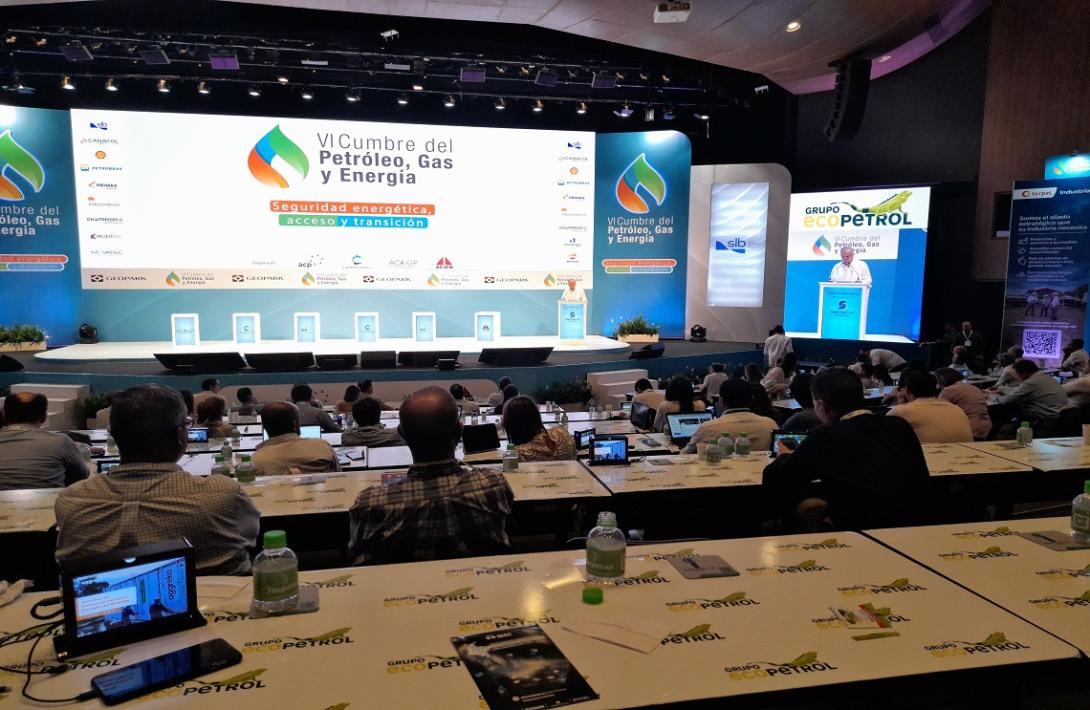The Defense sector under the leadership of Minister Velásquez participated in the closing ceremony that brings together the country's energy and fuel sector.
The Minister highlighted that the crimes of extortion and kidnapping have been reduced by 32% and 14%, respectively, by August and October 2023.
In the frame of the VI petroleum, Gas and Energy Summit, held in Cartagena, the Minister of Defense, Iván Velásquez, reaffirmed the Government of Change’s commitment to raise security conditions for the energy and fuel production enterprises in Colombia.
"I firmly believe that the fuel industry is a fundamental economic actor for the generation of well-being in Colombia, that is why we are implementing a different strategy, through the Security, Defense and Citizen Coexistence Policy, where the protection of life is prioritized, looking for ways to hit illicit wealth and thus weaken the illegal armed groups that hit this sector so hard," the Minister said.
The head of the Ministry of Defense in the same way spoke about the results of the implementation of the 360 Security Shock Plan of the Police, with a significant reduction in extortion and kidnapping of 32% and 14% by August and October, respectively, compared to the same months of the previous year. In addition, he highlighted the creation of new Gaula (Anti-Extortion and Anti-Kidnapping Groups) for the department of Atlántico and the Magdalena Medio region.
To date, more than 50% of the planned operations have been carried out, with 289 criminal structures intervened, which has resulted in the arrest of 1,349 people.
"We have provided personalized security to gasoline service stations with Army and Police. We have strengthened the padlock plans, which in the same way, thanks to the coordination with the fuel sector and their own surveillance systems, have led us to the recovery of money, arrest of those responsible for offences and rescue of kidnapped," said Minister Velásquez.
According to the senior official, to combat these crimes, the Ministry has in the same way focused on the planning and strengthening of the First Protection Plan for Critical Strategic Constructions, "which will led the State to make an inventory of those constructions and conduct the criticality assessment, identify and manage the vulnerabilities, risks and threats to which those constructions are exposed."
On the other hand, the Minister highlighted that, in the midst of a social conflict and after an electoral process, the Ministry of Defense must be more rigorous in terms of security commitments, working in every corner of the country, as is the case of El Plateado, in Argélia, Cauca, where the Army is working, preventing confrontations that disturb communities.
In the same way, he recalled that as part of the transparency in the elections and as has happened before, the National Civil Registry office, will contribute for the fuel of the helicopters that will transport electoral material to areas of difficult access in the country.
Source: Defense Sector Communications Office - Ministry of National Defense

